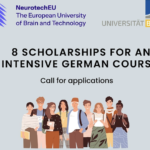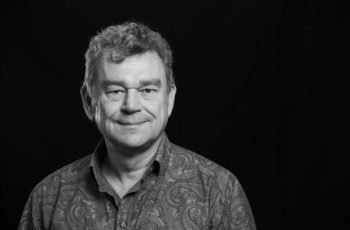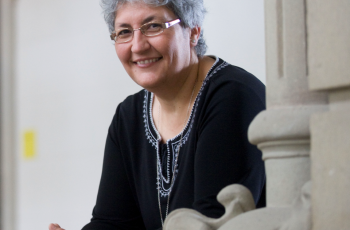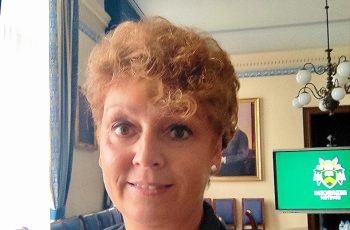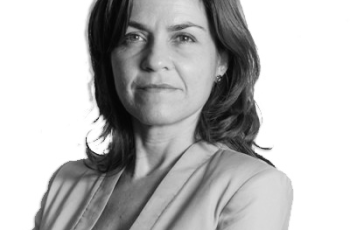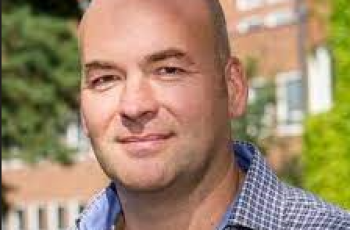In the faces of NeurotechEU series, several people in the NeurotechEU alliance are interviewed to learn about their experiences and insights.
Guillermo Talavera shares his journey and insights into managing NTEU’s multinational alliance with empathy and adaptability. In this interview, he discusses the challenges and opportunities he has encountered and underscores the essential role of building trust and collaboration.

The opportunity to work with people from diverse backgrounds is enriching. It enhances patience, understanding, and flexibility, valuable personal and professional skills.
Guillermo Talavera
How can someone with a physics and electronic engineering background become the Alliance manager?
I studied physics and electrical engineering, earning a Ph.D. in computer science specializing in computer architecture, particularly in embedded systems design. As a postdoc, I led a team of engineers working on European projects and wireless communication hardware design. Very fast, my role evolved from research to project management, grant-seeking, and team management, leading to my transition into a management role.
Barcelona’s cultural and political dynamics can be pretty distinctive. How has your background contributed to your ability to manage an international alliance with diverse cultural backgrounds?
In Barcelona Spanish and Catalan are both spoken, and I have a deep connection to this beautiful city. I attended a French school that provided an international environment with students from various countries. Additionally, I pursued my Ph.D. studying in both Spain and Belgium. These experiences exposed me to various cultures and taught me the value of being open-minded and adaptable. I believe that flexibility is a crucial skill in navigating cross-cultural environments.
You manage a multinational alliance. What have been the most significant challenges and opportunities in your role?
The biggest challenge was setting up the management and coordination unit for the project. We initiated it with just three team members in August 2022 while the project was underway. The coordination work, managing diverse teams, and reaching agreements on various matters have been ongoing challenges. However, the opportunity to work with people from diverse backgrounds is enriching. It enhances patience, understanding, and flexibility, valuable personal and professional skills. Furthermore, contributing to the development of a university represents a substantial opportunity and challenge.
You are based in Barcelona, though travel to the Netherlands occasionally. How do you manage the disparities between Spanish and Dutch cultures, which can differ in temperament and mood?
While there are some cultural differences, I enjoy collaborating with individuals from both backgrounds. Building relationships with my Dutch colleagues has been smooth, and we have developed mutual respect and understanding. Empathy and a willingness to accept different perspectives are essential to successful collaboration, regardless of cultural differences.
You have a demanding job, but do you pursue any hobbies in your free time?
I value spending time with my family, especially my three kids. I enjoy playing chess, reading and watching movies. These activities help me unwind and connect with my family.
As a project manager, you have a unique perspective on the project’s future. How do you see it?
The future of NTEU will continue to be challenging and very demanding, but that’s what makes it interesting. We’ve just begun, and the next four years will bring more challenges and opportunities. I’m excited to be part of this project because it keeps me engaged and motivated. I’m optimistic about the challenges we’ll face, and I believe in the value we’re creating.
What do you enjoy most about your work?
I particularly enjoy working with the team of professionals in the management office. Collaborating with my colleagues, brainstorming ideas, and finding innovative solutions to challenges is incredibly rewarding. The human and international facets of my role are what I find most fulfilling.
In my previous interview with Paul Verschure, he emphasized your significant contribution to the project’s success. He asked me to inquire about your approach to nurturing trust and collaboration among team members.
My approach to fostering trust and collaboration is rooted in empathy and acceptance. I believe in acknowledging that people have different perspectives and backgrounds, and respecting and understanding these differences is crucial. When people sense that you’re open-minded and accepting, they’re more likely to trust and collaborate effectively. Building trust is an ongoing process, and I believe in demonstrating reliability and openness, which can help our teams work together cohesively.
By: Krisztina Csiba from the University of Debrecen
